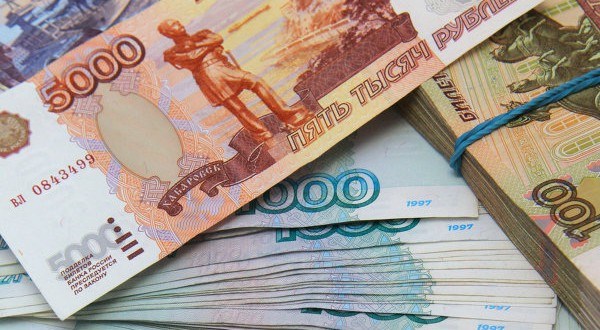Kremlin: Belarus must transition to a single currency with Russia
Belarus and Russia must transition to a single currency, said Russia’s Federation Council Chairperson Valentina Matviyenko in a broadcast of Belarus’s TV channel, ONT.
During a visit to Belarus, which took place four days after Vladimir Putin and Alexander Lukashenko spoke to each other in Valaam, Matviyenko said than no one in Russia has even brought up the topic of merging the two countries.
“This is a union of states, but it needs to be a full-fledged union,” she emphasized.
“Full-fledged with respect to identically developing economies, because otherwise integration will be difficult,” she explained.
This is a union, Matviyenko continued, which “must at some stage or other have a single currency” because otherwise it will be “difficult to have a single financial policy”.
The idea of a single currency, enshrined in the 1999 Union Treaty that the Kremlin began pushing for after a deterioration in relations with the West, is still opposed by Minsk, which does not want to lose its ability to print money.
Belarusian President Alexander Lukashenko is especially negative about the idea of transitioning to the Russian ruble. “We are not opposed to a common currency, but it must be a common currency, and not the currency of the Central Bank of Russia. There must be an emission center, established on equal terms,” he said in January.
The Russian Finance Ministry’s plans go far beyond Belarus’s borders. In 2020-2021, a single digital currency could emerge as part of the Eurasian Economic Union (EEU), announced Deputy Finance Minister Alexey Moiseyev in December last year.
The Russian government is of the opinion that Russia, Belarus, Kazakhstan, Kyrgyzstan and Armenia should transition to an equivalent of the European Currency Unit (ECU), which was used in the EU between 1979 and 1998.
The idea of introducing a single currency is more political than economic, observes analyst Narek Avakyan from BKS Broker’s investment department.
“One must understand that any deepening of integration assumes certain mutual concessions and compromises by the parties, and additionally, integration is also a partial loss of sovereignty, which is perceived particularly painfully by all union members. Essentially the leader of the EEU is Russia, and it must make some concessions for integration and unification to be more profound,” he believes.
As for Belarus, it is completely tied to the Russian market, but politically independent, and the country’s leaders do not want to lose this independence, Akavyan continues: “Introducing a single currency also assumes a partial loss of independence – Minsk will not have the ability to independently determine monetary policy or to regulate the currency market such that the exchange rate is beneficial to the economy.”
The West’s sanctions also create additional complications, observes Alexander Timofeyev, director of Instant Invest’s analysis department.
“The matter of imposing additional restrictions remains open. From time to time, American officials threaten to impose sanctions on the country’s government debt, and there are also fears of possible interference by Moscow in the 2020 elections. In light of these risks, depending on their realization and extent, Russia could be required to adjust the policy in various areas, which would also complicate the potential process of introducing a single currency with Belarus,” the expert explains.
